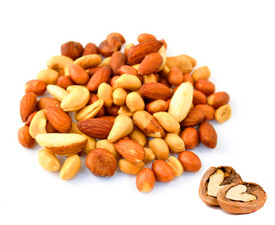Posted by Beyond Health on Nov 3rd 2025
Blood Clots
Q: I have three nephews who have Factor V Leiden. Factor V Leiden is the presence of a particular gene that is passed on from your parents. Factor V Leiden is a variant of the protein Factor V (5), which is needed for blood clotting. People who have a Factor V deficiency are more likely to bleed badly while people with Factor V Leiden have blood that has an increased tendency to clot. People carrying the Factor V Leiden gene have a five times greater risk of developing a blood clot (thrombosis) than the rest of the population. However, many people with the gene will never suffer from blood clots. In Britain, 5 per cent of the population carry one or more genes for Factor V Leiden, which is far more than the number of people who will actually suffer from thrombosis. What supplements can you recommend for someone with this condition? A: For someone suffering from Factor V Leiden, I would suggest our Beyond Health Ultimate Welness Kit, Garlic, and Linden Mistletoe for the bloo…
read more Fuel your life with the purest vitamins
Fuel your life with the purest vitamins


